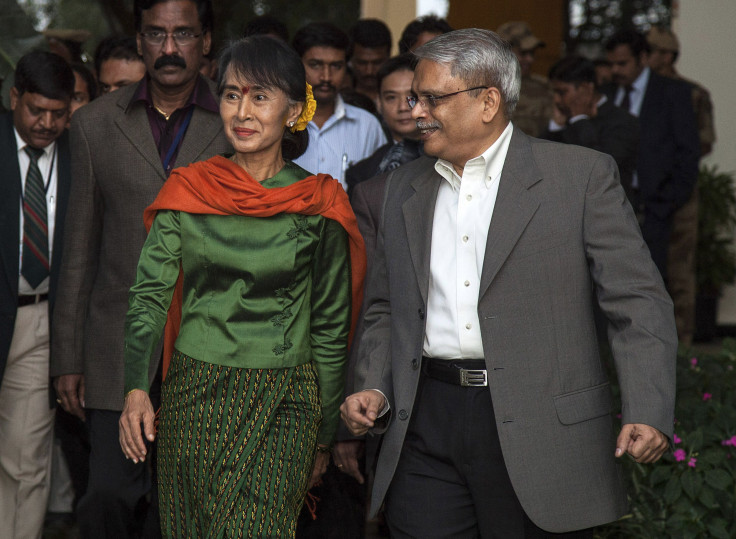With Myanmar Economy On The Rise, Indian Companies Want To Wrest Business Away From Dominant Chinese Rivals

Myanmar, formerly one of the poorest nations in Southeast Asia but now termed the region’s “next economic frontier” by the International Monetary Fund, is also the newest battleground for Indian companies seeking to wrest business away from Chinese firms, which remain the biggest investor in Myanmar, even as western companies rush to the country.
Export-Import Bank of India (Exim), the state-controlled trade financing institution, has agreed to invest $800 million in Myanmar, part of which will be used to upgrade the Yangon-Mandalay railway and a plant for Tata Motors Limited (NYSE:TTM) to assemble vehicles in the country, said David Rasquinha, the executive director of the bank, according to Bloomberg.
Chinese companies have previously invested more than $14.19 billion in its neighboring country.
The competition is somewhat uneven for Exim, as China Development Bank Corp., which has a loan book more than three times the size of the World Bank, and the Export-Import Bank of China, offer cheap loans to snare business. The Indian bank is planning to sign credit agreements of as much as $500 million by the next month, to participate in an economy that the IMF predicts will expand 7 percent over the next five years.
“We shouldn’t get pessimistic because competition is there,” Rasquinha said in an interview in Mumbai. “We should be seeing the size of the pie and fighting smart.”
Thus far, India has made a single $2.5 billion investment by Oil & Natural Gas Corporation Limited (NSE:ONGC).
China Development Bank signed a $2.4 billion loan agreement with Myanmar’s Foreign Investment Bank in 2010, according to the Myanmar Times, to help fund a natural gas pipeline between the two countries. In May 2011, the bank agreed to provide Myanmar’s Ministry of Taxation and Finance with a 540 million euro ($718 million) line of credit during a meeting between Myanmar President Thein Sein and former Chinese President Hu Jintao.
Exim, which has been active in lending to Africa and helped boost India’s trade with African countries, is hoping to replicate some of its success in Myanmar. The bank if trying to “excite” Indian companies to conduct business in Myanmar, Rasquinha said.
Myanmar needs $650 billion in investment by 2030 to support the 8 percent GDP growth potential forecasted by McKinsey Global Institute, the research unit of McKinsey & Co. Companies wanting to do business in Myanmar, which has been ruled by a military regime until 2011, will have to adjust to the pace of the country’s opening, corruption, and the lack of infrastructure.
The Southeast Asian country, which borders both India and China, is ranked No. 172 of 176 in Transparency International’s 2012 corruption perception index.
Myanmar’s liberalization may reduce its dependence on China, according to Olivia Boyd, a Beijing-based energy analyst at IHS Global Insight. China has been a long-time supporter of the country’s junta government, and was the only major foreign investor, benefitting from its close ties with Myanmar’s leaders. Now, however, the local population is protesting against certain Chinese companies for unfair contracts, environmental damages and their relationship with the junta.
“Myanmar’s dependence on China is lessening,” Boyd said. “Chinese companies wield less bargaining power, meaning that Chinese companies may face further contract revision of this sort in the future.”
A contract with Chinese Wanbao Mining Co.’s Latpadaung copper mine was revised recently, giving Myanmar’s current government a large share of the mine’s revenue.
Indian companies may be able to tap part of the business if they take a long-term view, said Rasquinha, according to Bloomberg.
“The pie is so big that there’s room for all of us,” he said. “China has large large amounts of money available and can lend at very low rates, but they can’t finance every single project.”
© Copyright IBTimes 2024. All rights reserved.





















